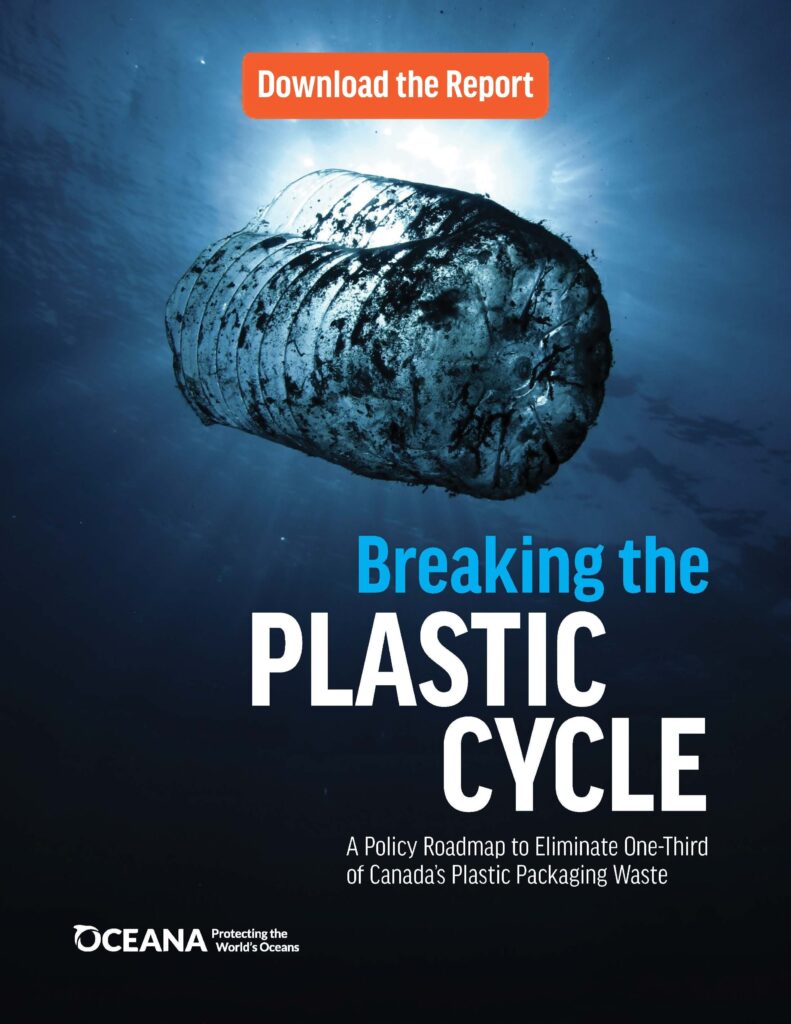Report | November, 2023
Breaking the Plastic Cycle: A Policy Roadmap to Eliminate One-Third of Canada’s Plastic Packaging Waste
Breaking the Plastic Cycle is a policy roadmap for the federal government that provides an evidence-based guide to eliminating one third of our country’s plastic packaging. Plastic packaging, the vast majority of which is single-use, accounts for half of all plastic waste in Canada. By implementing Oceana Canada’s recommended policy solutions, Canada can prevent the generation of nearly nine million tonnes of single-use plastic by 2040. Protecting the ocean, marine wildlife and ourselves from this pollution.
This roadmap supports federal government commitments to zero plastic waste. It provides an in-depth analysis of the largest sources of single-use plastics in Canada and their impact on the waste stream. It also investigates alternatives available, best practices already in use around the world, and the policy interventions readily available to the federal government to start making a difference here at home.
Unless Canada adopts these recommendations, single-use plastic will exponentially increase annually. With the right federal actions, Canada can hit peak plastic as early as 2026 and put us on the path toward zero plastic waste going forward.
The analysis reveals several key insights:
- Half the plastic thrown away in Canada is single-use packaging, a broad category that covers water bottles, foodservice ware, pallet wrap and more. As the largest category of plastic waste, this makes it a prime early target for reduction efforts.
- Canada cannot recycle its way out of the plastic pollution crisis: only eight per cent of plastic waste is recycled in Canada. Instead, we need solutions that stop single-use plastic generation at the source.
- Currently, Canada has approached tackling plastic pollution on a product-by-product basis. Instead, we need to evolve to a sector-level approach to reducing or eliminating single-use plastics.
- The federal government’s two most powerful policy tools are (1) bans that can eliminate unnecessary plastics and (2) pollution prevention plans that cooperatively work with industries to establish industry-wide targets of: plastic reduction, refill and reuse, recyclability requirements and ambitious recycling rates.
- More than 730,000 tonnes of single-use plastic each year could be removed from key sectors: grocery stores, beverage bottlers, e-commerce, non-recyclable plastic packaging, pallet wrap, hospitality and catering.
Additional resources :
- Press release
- Pledge to tackle plastic pollution
- Petition to ban burning of plastic waste
- Plastic campaign


